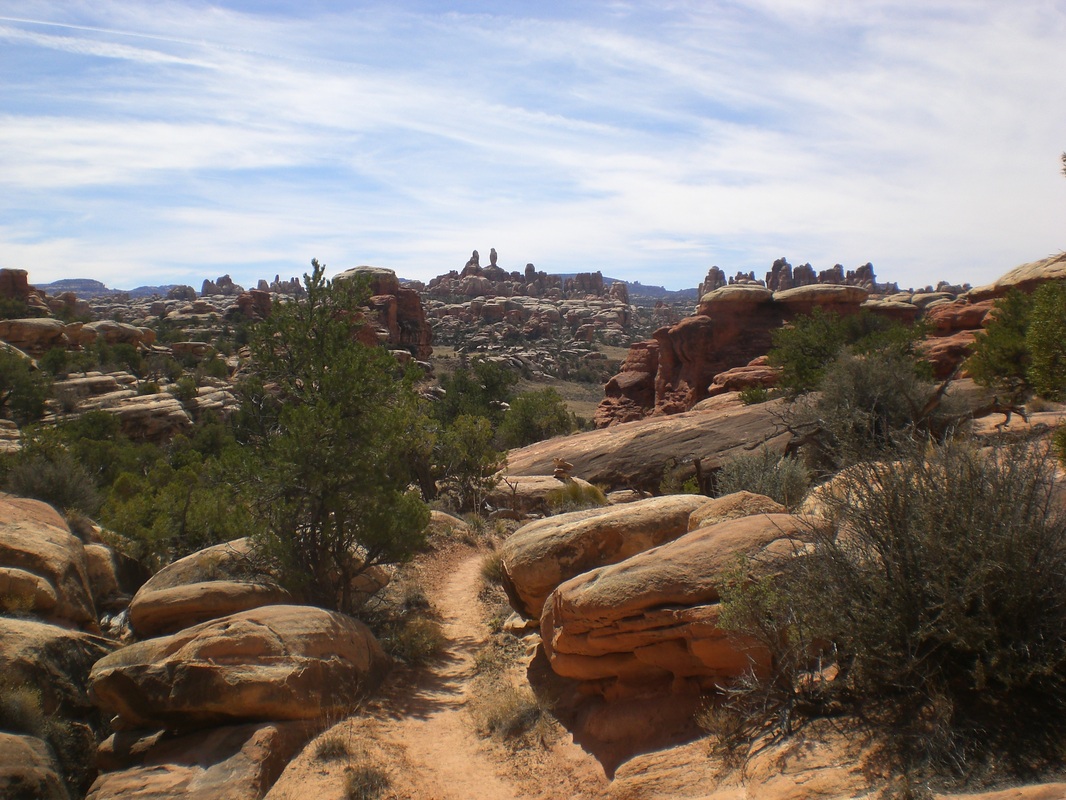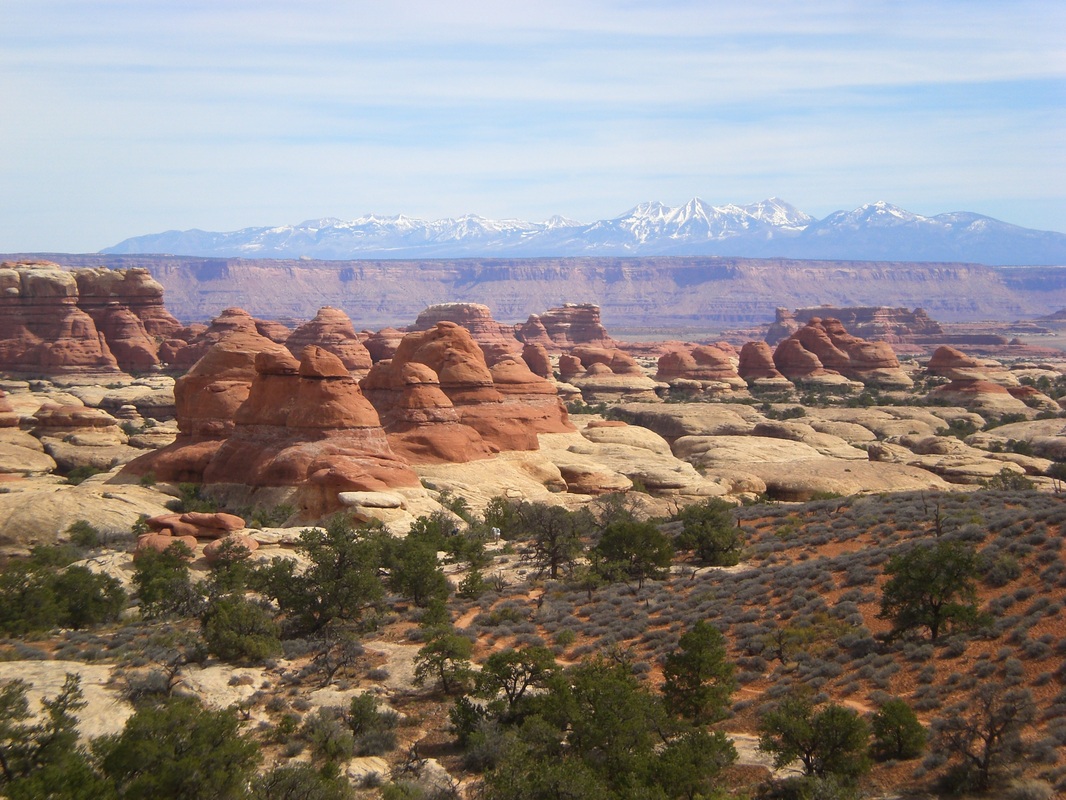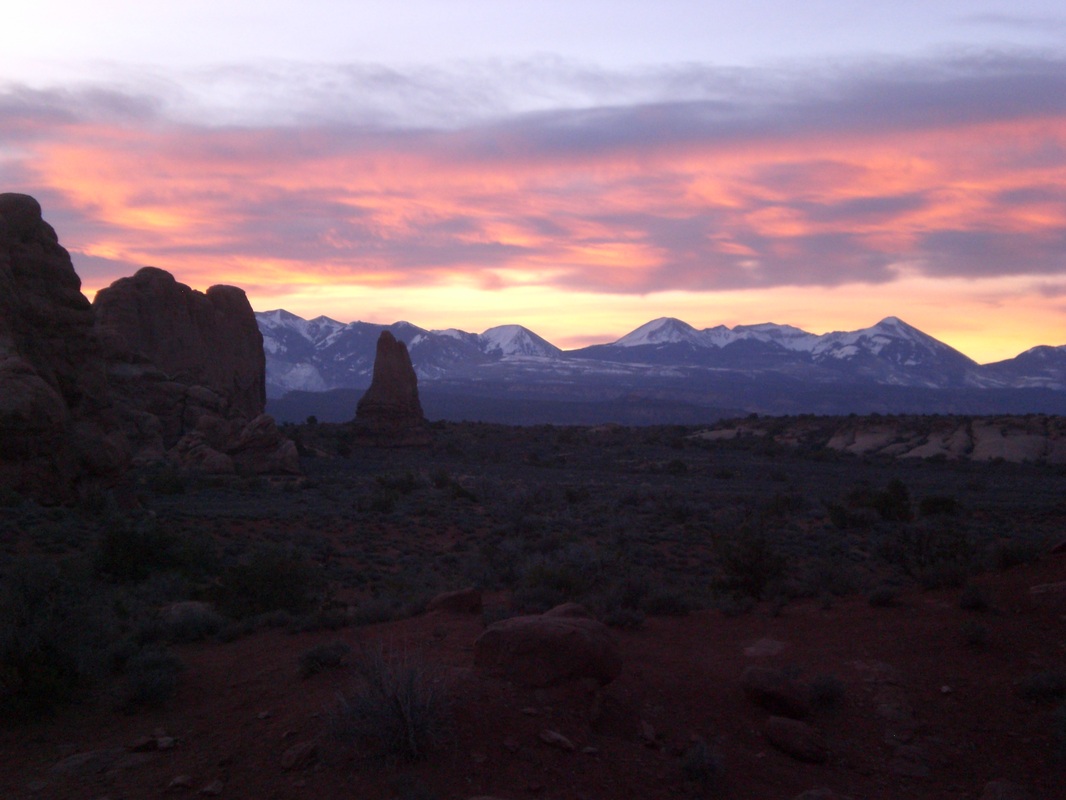The Hayduke Trail covers 800 miles through some of the most remote and challenging country the National Park Service, BLM, and Forest Service have to offer. It links six national parks in Utah and Arizona and is considered very difficult in each of its many sections. Last week, Andrew Rivers, Travis Anderson, and Zach Luinder, began tackling the trail in its entirety, and they plan to do it in just six to seven weeks. These accomplished hikers can boast multiple completions of the Appalachian Trail, Pacific Crest Trail, and Continental Divide Trail, just to name a few. Their current route is marked by dangerously hot and arid conditions, grueling elevation changes, and some of the most beautiful country in the world. Fortunately, their journey through various remote and fascinating ecosystems will be benefiting the area itself.
Rivers, a participant in the citizen-science grizzly and wolverine tracking hosted by
Adventurers and Scientists for Conservation, contacted the nonprofit to see which scientists could benefit from his trek.
ASC paired him with Dr. Liza Holeski of the Department of Entomology at the University of Wisconsin, Madison and Javier Monzon from the Department of Ecology and Evolution at Stony Brook University in New York. Resupplies about once per week will offer the athletes the opportunity to mail samples and data to the scientists. Matching the athletes with two different researchers enables the journey to benefit both the flora and the fauna of the Colorado Plateau, the region in which it takes place.
Dr. Holeski studies the role of evolution and genetics in the defenses that plants develop against herbivores and insects. The yellow (or common) monkey-flower is a species that is distributed through a wide variety of areas in western North America, but it tends to like water and high alpine places. Finding populations in a desert climate will shed light on how it develops under different conditions. Photos and GPS waypoints at flower locations will greatly aid Liza’s research. Ultimately, she is looking for a good population that she can potentially breed in a greenhouse and study. Analyzing the genes that are used in their defenses, she can then backtrack and determine where the flowers diverged from other members of their species.
Mr. Monzon’s research focuses on coyotes; specifically their hybridization with wolves and how offspring take on the traits from their parents that best suit them in their environment. Using landscape genomics, he is able to infer much about these predators and their behavior without directly interacting with them. He has been studying them in the Northeast, but has very little data from the Southwest. Thus, the adventurers have their noses to the ground, not only for yellow monkey-flower, but for coyote scats as well. While they will be primarily concerned with coyote waste, noting any other carnivore scats as well as barriers to movement (roads, fences, etc.) will provide Mr. Monzon with information on other predators in the area, connectivity between public lands, and habitat details.
While they seem widely different, both scientists are studying the local adaptations of their subjects. More information means better knowledge of this delicate region and can lead to better conservation and management practices. This trek can potentially lead to more projects for Dr. Holeski and Mr. Monzon, and
ASC will continue to provide the connection between these researchers and adventure athletes. Research on both the yellow monkey-flower and coyotes can be facilitated by adventurers in huge portions of the U.S. and beyond. Rivers is planning on hiking the 1,900 mile Pacific Crest Trail (for the second time) later this year, and his connection with
ASC will ensure that valuable information is returned from this peregrination as well. For more information on the scientists, check out
https://entomology.wisc.edu/~holeski/ and
https://life.bio.sunysb.edu/~jmonzon/Javier_Monzon/About_Me.html. For a more in-depth view of the Hayduke Trail, visit
https://www.hayduketrail.org/index.html.



